¿Qué es un camión de caja? Usos, tipos y ventajas del transporte
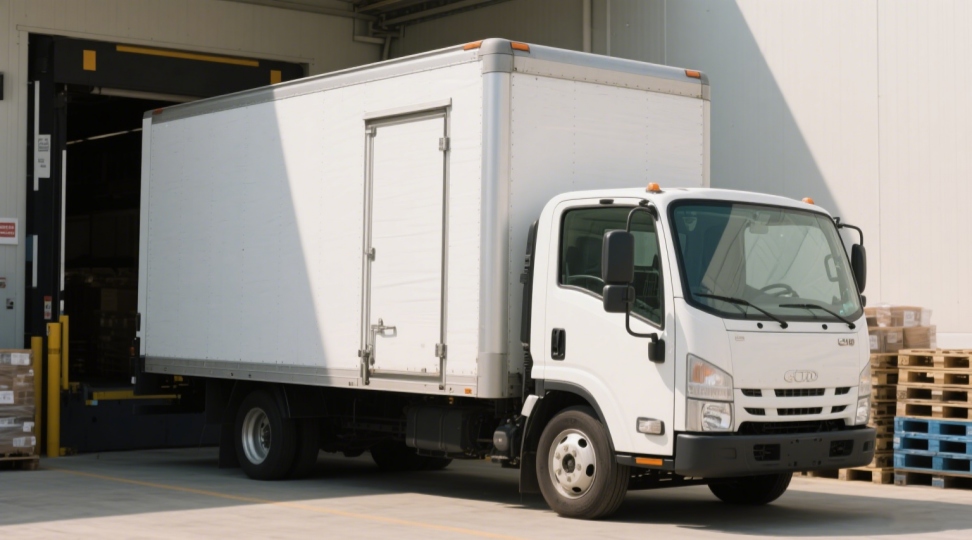
Introducción:
Los camiones de caja son un componente clave del transporte moderno, desempeñando un papel esencial en sectores que abarcan desde el comercio minorista y los servicios de mudanza hasta la logística y el transporte de mercancías. Estos versátiles vehículos se utilizan para transportar mercancías de forma segura, y su diseño permite flexibilidad tanto en cuanto a la carga como al destino. Tanto si se trata de una empresa que busca optimizar su sistema de entrega como de un particular que considera servicios de mudanza, es fundamental comprender las características, los tipos y las normativas de los camiones de caja.
En este artículo, exploraremos qué son los camiones de caja, los distintos tipos disponibles, el tipo de mercancía que pueden transportar y cómo se integran en los sistemas globales de logística y transporte. Además, profundizaremos en la normativa que los rige, sus costes y sus beneficios en la logística internacional. Nuestro objetivo es ofrecer una guía completa y perspicaz para ayudarle a tomar mejores decisiones de transporte.
¿Qué es un camión de caja?
Un camión de caja (también conocido como furgón, furgón cúbico o camión de carga) es un vehículo con un amplio compartimento de carga cerrado, montado sobre un chasis. Este espacio cerrado permite el transporte seguro de mercancías, protegiéndolas de la intemperie y posibles robos. El compartimento de carga suele estar hecho de materiales como madera, metal o paneles compuestos, lo que proporciona durabilidad y seguridad al contenido.
Los camiones de caja se utilizan generalmente para entregas locales, servicios de carga y mudanzas, entre otros. Pueden ir desde vehículos pequeños para entregas urbanas hasta camiones grandes para el transporte de mercancías a larga distancia. La característica distintiva de un camión de caja es su compartimento de carga rígido y completamente cerrado, que ofrece mayor protección y seguridad en comparación con los camiones abiertos o de plataforma.
La definición de un camión de carga
Un camión de carga es un término general para cualquier vehículo utilizado para el transporte de mercancías. Puede incluir camiones abiertos (como plataformas) o vehículos cerrados, como camiones de caja. La principal diferencia entre un camión de carga y un camión de caja es que este último cuenta con un compartimento de carga completamente cerrado, ideal para transportar artículos que necesitan protección contra elementos externos como la lluvia, el polvo o el robo.
Tipos de camiones de caja
Los camiones de caja vienen en diversos tipos, cada uno adaptado a necesidades e industrias específicas. A continuación, se presentan algunos tipos comunes:
1. Camiones de caja estándar
Descripción: Estos son los tipos más comunes de camiones de caja. Cuentan con un área de carga cerrada estándar, lo que ofrece una solución versátil para una amplia gama de aplicaciones.
Uso: Ideales para el transporte de mercancías generales, como muebles, artículos para el hogar y suministros comerciales. Se utilizan a menudo para entregas locales y mudanzas.
2. Camiones refrigerados (camiones refrigerados)
Descripción: Los camiones refrigerados están equipados con un sistema de enfriamiento que les permite transportar productos sensibles a la temperatura.
Uso: Se utiliza comúnmente en la industria alimentaria, farmacéutica y otros sectores que requieren controles de temperatura estrictos para mantener la integridad de los productos durante el transporte.
3. Camiones de caja de piso plano
Descripción: Estos camiones de caja tienen un piso de carga plano y nivelado que hace que la carga y descarga sean más eficientes, especialmente para artículos pesados o voluminosos.
Uso: Perfecto para transportar equipos grandes o pesados, maquinaria industrial y muebles de gran tamaño.
4. Camiones de caja personalizados
Descripción: Están especialmente diseñados para satisfacer necesidades específicas, como talleres móviles, unidades médicas o vehículos de respuesta a emergencias.
Uso: Los camiones de caja personalizados se pueden adaptar para una amplia variedad de propósitos, como en construcción, entretenimiento o negocios móviles como camiones de comida.
5. Cresswell y Mean Trucks
Descripción: Se trata de camiones de caja especializados, a menudo construidos para aplicaciones de trabajo pesado o industrias específicas, como la construcción o el transporte de mercancías.
Uso: Utilizados para aplicaciones industriales robustas y transporte de mercancías de larga distancia, estos camiones están construidos para soportar cargas pesadas y condiciones extremas.
¿Qué mercancías se pueden transportar en camiones de caja?
Los camiones de caja son increíblemente versátiles y pueden transportar una amplia gama de mercancías. Cada tipo de camión de caja es adecuado para distintos tipos de carga. A continuación, un desglose:
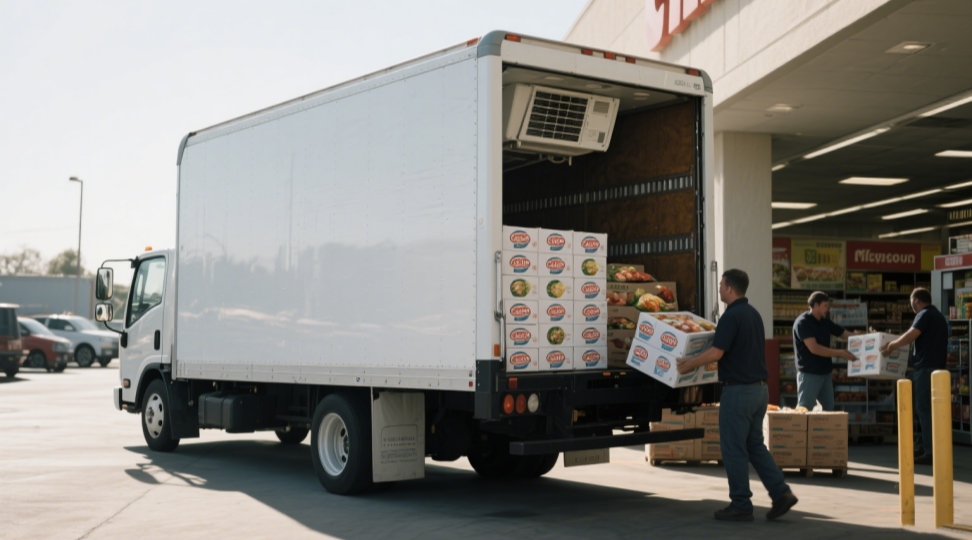
Muebles y artículos para el hogar: Los camiones de caja estándar se utilizan comúnmente para mudanzas residenciales y el transporte de artículos domésticos voluminosos. Su diseño hermético los protege de los elementos externos.
Electrónica y Mercancías frágiles: Los camiones de caja son ideales para transportar electrónica delicada, ya que ofrecen un almacenamiento seguro y cerrado. Están equipados con características de seguridad adicionales, como amarres y acolchado, para proteger las mercancías durante el transporte.
Artículos perecederos: Los camiones refrigerados, también conocidos como camiones refrigerados, están diseñados específicamente para transportar artículos perecederos que requieren control de temperatura, como alimento, flores, y productos farmacéuticos.
Equipos y maquinaria pesada: Los camiones de caja de piso plano son perfectos para transportar equipos pesados, herramientas o maquinaria, ya que permiten una fácil carga y descarga sin obstáculos.
Opciones de tamaño de camión de caja y capacidad de carga
Los camiones de caja vienen en una variedad de tamaños, según el tipo de carga a transportar y el nivel de movilidad requerido. A continuación, se detallan los tamaños disponibles:
| Tamaño | Volumen de carga | Capacidad de carga útil | Uso típico |
|---|
| Pequeño | 12-16 pies | 3.000-6.000 libras | Entregas locales, pequeñas mudanzas |
| Medio | 16-22 pies | 6.000-10.000 libras | Bienes comerciales, entrega de alimentos |
| Grande | 22-26 pies | 10,000-15,000 libras | Transporte de mercancías a larga distancia |
Costos de los camiones de caja
El costo de un camión de caja puede variar según el tamaño, las características y si es nuevo o usado. A continuación, se presenta una idea general del rango de precios:
Camiones de caja estándar: Por lo general, un camión de caja estándar puede costar entre $20,000 para un modelo usado más pequeño y $50,000 o más para modelos más grandes y nuevos con características más avanzadas.
Camiones refrigerados: Los camiones refrigerados suelen ser más caros debido a sus unidades de refrigeración. El precio de un camión refrigerado nuevo oscila entre $40,000 y $80,000.
Camiones de caja personalizados: Estos camiones son altamente especializados y a menudo cuestan más de $50,000, y algunos camiones hechos a medida cuestan mucho más de $100,000, dependiendo de la complejidad del diseño y las características.
Requisitos de licencia y reglamentación para camiones de caja
Los requisitos de licencia para operar un camión de caja varían según su peso, propósito y la región o país donde opera. Sin embargo, la mayoría de los camiones de caja de más de 11,888 kg (26,000 lb) requieren una Licencia de Conducir Comercial (CDL) en Estados Unidos. También pueden aplicarse regulaciones específicas a los vehículos que transportan materiales peligrosos o que operan en zonas urbanas.
A continuación se presentan algunas reglas generales:
Camiones de caja estándar: Se requiere una CDL para vehículos de más de 26,000 libras, pero los camiones más pequeños pueden estar exentos.
Camiones refrigerados: Además de una licencia CDL, los operadores de camiones refrigerados pueden requerir capacitación especializada para la unidad de refrigeración.
Camiones de caja personalizados: Los vehículos personalizados a menudo tienen requisitos adicionales, en particular si se utilizan para fines específicos, como transportar materiales peligrosos o funcionar como empresas móviles.
Camiones de caja en la logística internacional
Los camiones de caja desempeñan un papel fundamental en la logística internacional, ya que sirven como último eslabón de la cadena de suministro, especialmente durante las entregas de última milla. Ya sea transportando mercancías desde un puerto o una estación de tren, los camiones de caja garantizan la entrega segura y puntual de productos en diversos países.
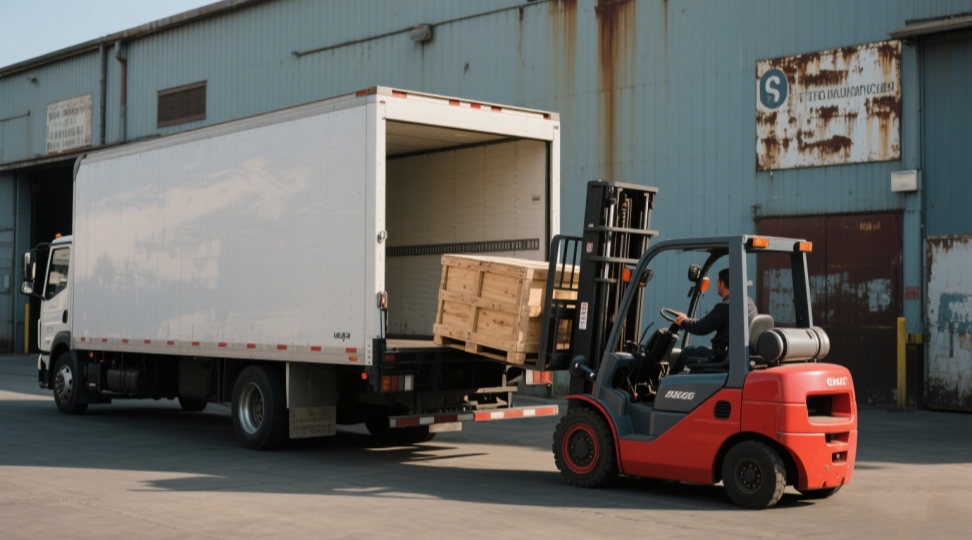
Alcance global de los camiones de caja:
En muchos países, los camiones de carga son cruciales para el comercio transfronterizo, garantizando el transporte fluido de mercancías de un país a otro. Por ejemplo, en la región euroasiática (Rusia, Asia Central y Bielorrusia), los camiones de carga constituyen la columna vertebral de la logística regional, conectando el transporte ferroviario o marítimo con el destino final.
Integración con el transporte ferroviario y marítimo:
Los camiones de caja suelen ser parte de sistemas de transporte multimodal, donde complementan modos de transporte más grandes como el ferrocarril y transporte marítimoTras llegar a un puerto o terminal ferroviaria, los camiones de carga suelen utilizarse para el transporte terrestre, garantizando así que las mercancías lleguen a su destino final de forma eficiente.
Preguntas frecuentes (FAQ)
1. ¿Qué es un camión de caja?
Un camión de caja es un vehículo con un área de carga cerrada, diseñado para transportar mercancías de forma segura. Su amplio espacio de carga, con forma de caja, protege de las inclemencias del tiempo.
2. ¿En qué se diferencia un camión de caja de un camión de carga?
Si bien ambos se utilizan para transportar mercancías, los camiones de caja tienen un compartimento de carga completamente cerrado, lo que los hace más seguros e ideales para mercancías sensibles que necesitan protección.
3. ¿Qué pueden transportar los camiones de caja?
Los camiones de caja pueden transportar una amplia gama de mercancías, como muebles, productos electrónicos, productos perecederos y maquinaria pesada. Existen diferentes tipos de camiones de caja optimizados para necesidades específicas, como camiones refrigerados para alimentos o camiones de plataforma para maquinaria pesada.
4. ¿Cuáles son los requisitos de licencia?
Los camiones de caja de más de 11,800 kg suelen requerir una Licencia de Conducir Comercial (CDL). Pueden aplicarse requisitos adicionales para camiones especializados, como vehículos refrigerados o aquellos que transportan materiales peligrosos.
5. ¿Cuánto cuesta un camión de caja?
El costo de un camión de caja varía según el tamaño y el tipo, con precios que oscilan entre $20,000 y $100,000+ para modelos más grandes o hechos a medida.
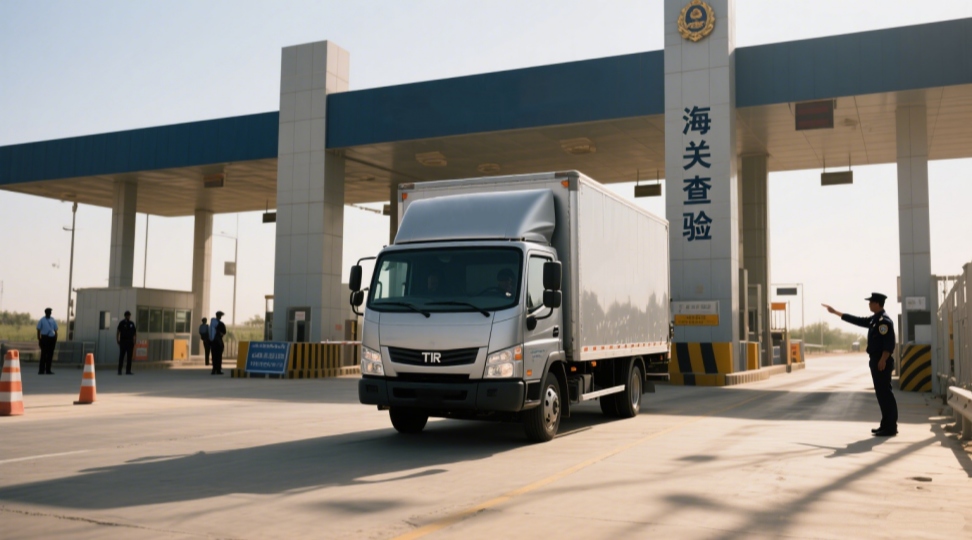
Conclusión:
Los camiones de caja son una parte fundamental del ecosistema logístico, ofreciendo soluciones de transporte versátiles y seguras para diversas industrias. Desde entregas locales hasta transporte internacional de mercancías, cumplen una función importante para garantizar el transporte seguro y eficiente de las mercancías. Ya sea que necesite trasladar artículos del hogar, productos perecederos o maquinaria pesada, comprender los diferentes tipos de camiones de caja y sus aplicaciones puede...
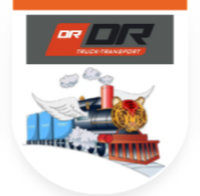














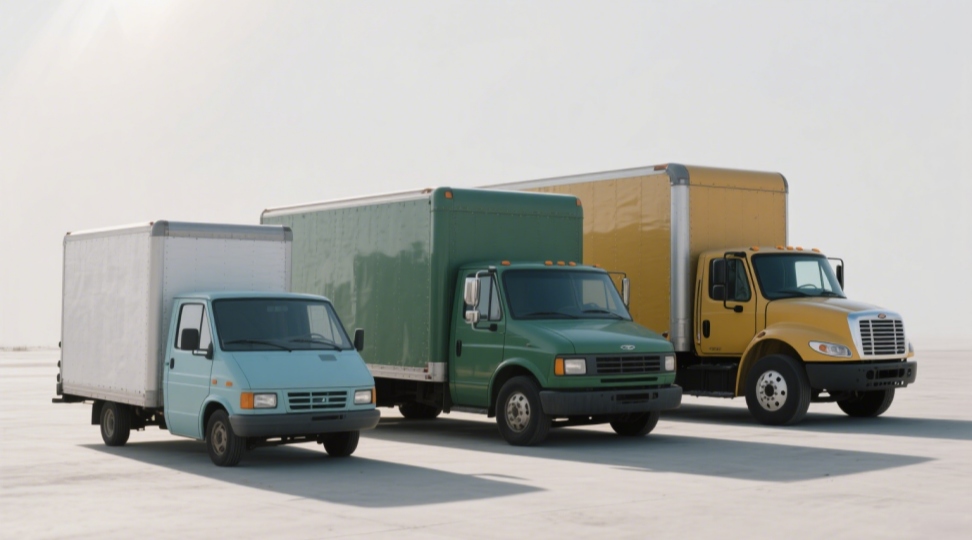



 IPv6 RED SOPORTADA
IPv6 RED SOPORTADA
